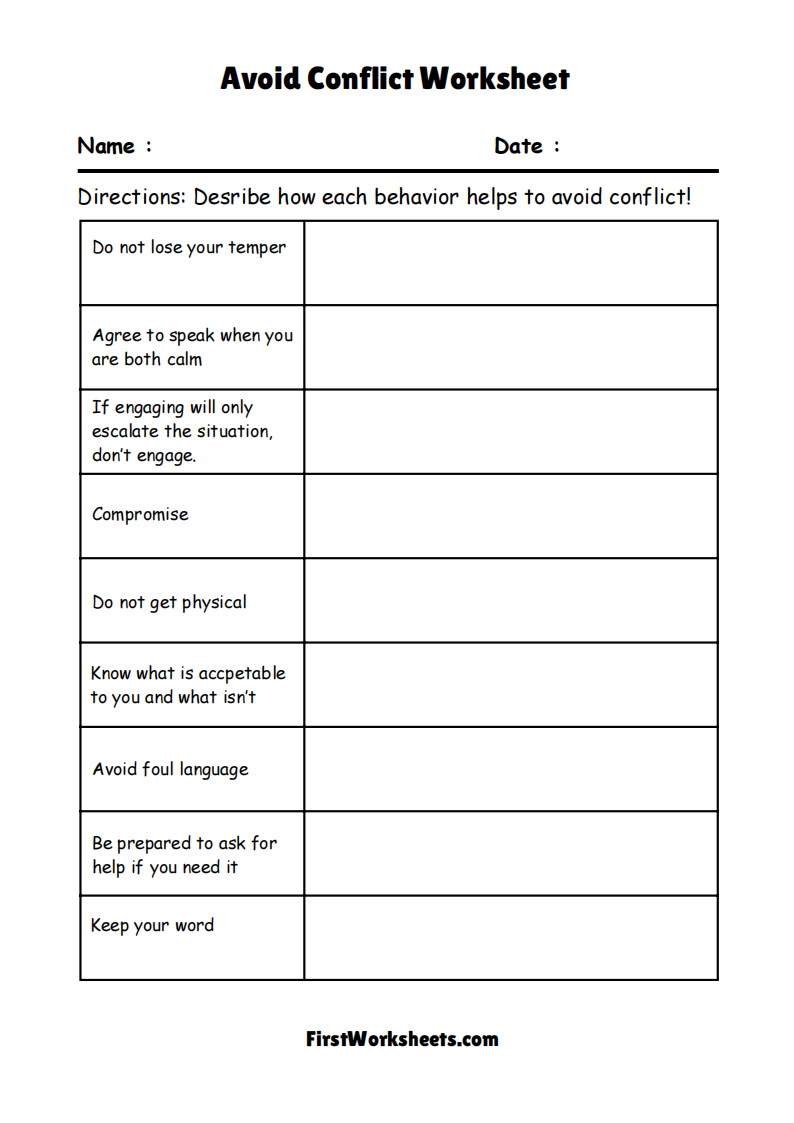This worksheet focuses on conflict resolution strategies. It outlines various behaviors that can help individuals avoid conflict in their interactions. The worksheet is likely designed to be used as a tool for self-reflection or as part of a conflict resolution training program. Here’s a breakdown of its purpose and contents:
Purpose:
- Conflict Prevention: The primary goal of the worksheet is to equip individuals with actionable strategies to prevent conflicts from arising or escalating.
- Self-Awareness: It encourages users to reflect on their own behavior and identify areas where they can improve their conflict resolution skills.
- Skill Development: By completing the worksheet, users can develop a deeper understanding of effective conflict management techniques.
Contents:
The worksheet includes a list of behaviors, each of which contributes to conflict avoidance:
- Do not lose your temper: Maintaining emotional control is crucial in preventing conflicts from escalating.
- Agree to speak when you are both calm: Choosing the right time to discuss disagreements can lead to more constructive conversations.
- If engaging will only escalate the situation, don’t engage: Recognizing when disengagement is the best course of action can prevent unnecessary conflict.
- Compromise: Finding middle ground and being willing to compromise can help resolve disagreements peacefully.
- Do not get physical: Physical aggression is never an acceptable way to resolve conflict.
- Know what is acceptable to you and what isn’t: Setting clear boundaries and communicating them assertively can help prevent misunderstandings and conflicts.
- Avoid foul language: Using respectful language can de-escalate tension and promote productive communication.
- Be prepared to ask for help if you need it: Seeking support from others, such as mediators or counselors, can be beneficial in resolving conflicts.
- Keep your word: Building trust and reliability through keeping commitments can contribute to a conflict-free environment.
By understanding and practicing these behaviors, individuals can enhance their ability to navigate disagreements and maintain positive relationships.
